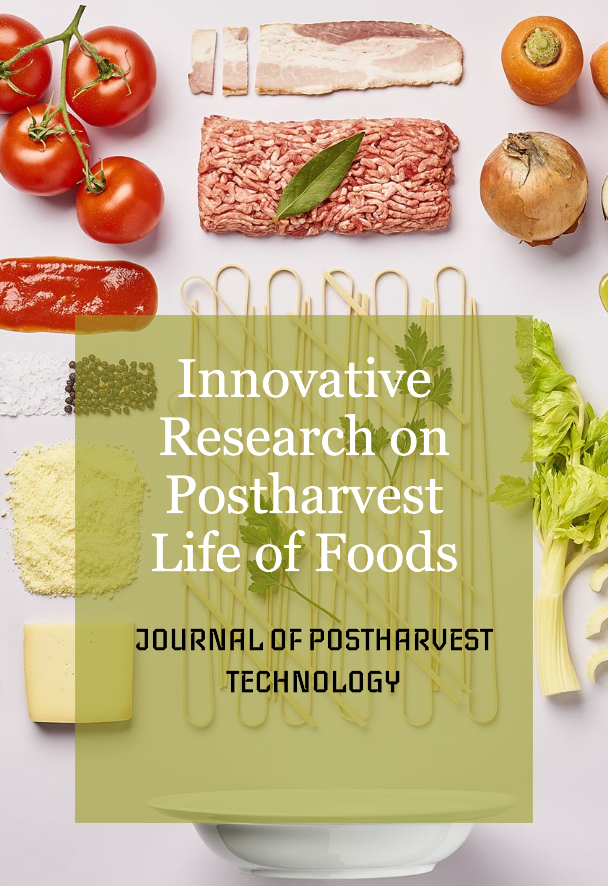Development of albumen rich ready to eat coagulated egg product
Keywords:
Ready to eat product, egg, albumen coagulation, coagulated egg product.Abstract
Development of albumen rich RTE coagulated egg product was carried out using blends of albumen with yolk and different spices at optimum temperature and time combination of 92.77˚C/12 min which was optimized in earlier studies using response surface methodology. Result showed that based on sensory scores on nine-point hedonic scale, red chili powder and cardamom were the only spices compatible with the albumen. Optimized RTE coagulated egg product could be obtained from the yolk free egg with spice mix at the rate of 0.3%..
References
Badwaik L., Prasad K. and Deka S. 2012. Optimization of extraction conditions by response surface methodology for preparing partially defatted peanut. International Food Research Journal. 19(1), 341-346.
Badwaik L. S., Prasad K. and Seth D. 2014. Optimization of ingredient levels for the development of peanut based fiber rich pasta. Journal of Food Science and technology. 51(10), 2713-2719.
Kumar S. and Prasad K. 2017. Optimization of Flaked Rice Dry Roasting in Common Salt and Studies on Associated Changes in Chemical, Nutritional, Optical, Physical, Rheological and Textural Attributes. Asian Journal of Chemistry. 29(6), 1380- 1392.
Kumar V., Sharma H. K. and Prasad K. 2008. Compositional optimization of bleaching powder and iodine tincture for the treatment of water by response surface methodology. Ecology, Environment and Conservation. 14(1), 95-100.
Kumari K., Prasad K. and Kundu P. P. 2009. Optimization of chlorpheniramine maleate (CPM) delivery by response surface methodology–four component modeling using various response times and concentrations of chitosan-alanine, glutaraldehyde and CPM. Express Polymer Letters. 3(4), 207-218.
Paraskevopoulou A. and Kiosseoglou V. 1997. Texture profile analysis of heat-formed gels and cakes prepared with low cholesterol egg yolk concentrates. Journal of Food Science. 62(1), 208-211.
Prasad K. 2009. Application of RSM and MR optimization in the development of ready-to-serve (RTS) beverage. International Journal of Applied Agricultural Research. 4(2), 87-96.
Prasad K. and Sharma H. K. 2002. Compositional optimization of whey based mango beverage using response surface methodology. Egyptian Journal of Dairy Science. 30(1), 75-82.
Prasad K. and Singh Y. 2014. Rice based vegetable supplemented functional instant soup mix: development and optimization. Scholars’ Press, Germany,
Prasad K. and Vairagar P. R. 2014. Instant chickpea splits: Optimization using Response Surface Methodology. Lambert Academic Publishing, Germany,
Ranganna S. 1986. Handbook of analysis and quality control for fruit and vegetable products. Tata McGraw-Hill Education, New Delhi
Sharma H. K., Prasad K., Jindal S., Sood P. and Pandey H. 2003. Optimization of ingredients for the manufacture of soft-serve ice-cream (Softy) by response surface methodology (RSM). International Journal of Dairy Technology. 56(1), 22-25.
Singh Y., Yadav P. and Prasad K. 2014. Fatty Acid Profile Optimization in Edible Oil Blend Through Linear Programming. Asian Journal of Chemistry. 26(4), 1145-1150.
Sloan A. E. 1999. The new market: foods for the not-so-healthy. Food Technology. 53(2), 54-60.




